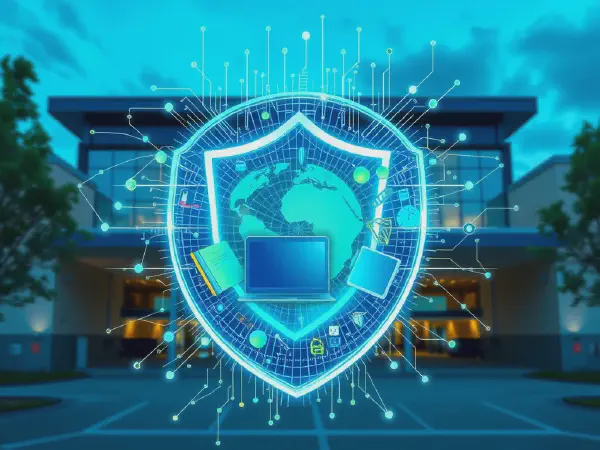Top 5 Best VPNs for Schools in Australia: Secure Learning

Best VPN For Schools Australia
In today's digital era, where online learning has become more prevalent, securing students' online activities is more crucial than ever. The Best VPN For Schools in Australia provides the necessary tools to ensure students can access educational resources safely and privately, regardless of geographical restrictions or network limitations.
When selecting the Best VPN For Schools Australia, it's essential to consider factors such as security features, speed, and accessibility that cater specifically to the educational environment. A reliable VPN can help bypass content filters that schools often implement, granting students access to a broader range of learning materials.
Moreover, the Best VPN For Schools Australia not only protects student data but also fosters a secure online learning environment by encrypting internet traffic, thus preventing unauthorized access to sensitive information. This is particularly important in schools where students' private data must be safeguarded and respected.
In addition to security and privacy, the Best VPN For Schools Australia enables students to collaborate effectively on projects and engage in remote learning without restrictions. By ensuring a stable and secure connection, a VPN can significantly enhance the educational experience for students across Australia.
Choosing a good school VPN can enhance students' online privacy and accessibility to learning resources.
Ultimately, the Best VPN For Schools Australia empowers educators and students alike, offering a seamless, secure, and unrestricted online education experience that nurtures academic growth and innovation.
Benefits of Using a VPN in Schools
Enhancing online security for students is one of the primary benefits of using a VPN in schools. With increasing incidents of cyber threats targeting educational institutions, a VPN provides an additional layer of security by encrypting internet traffic and safeguarding sensitive data against potential intrusions.
Accessing restricted educational resources is another significant advantage of using a VPN in schools. Many valuable online resources, such as research databases and educational tools, may be geo-restricted. A VPN allows students to bypass these barriers, enabling them to conduct research without limitations.
Protecting student privacy and data is a critical concern for schools. With a VPN, students' online activities remain anonymous, and their personal information is shielded from prying eyes. This is particularly important in safeguarding the identities of minors in the digital space.
Implementing a VPN for school ensures a secure network for students accessing educational content.
Facilitating safe remote learning practices is another key benefit of VPNs in education. As remote learning grows, a secure VPN ensures that students and teachers can interact through various platforms without the risk of being exposed to online threats or data breaches.
Top Features to Look for in School VPNs
When selecting a VPN for schools, high-speed and reliable connections are paramount. Students and educators need fast internet speeds to facilitate seamless online learning experiences, streaming video lectures, and accessing heavy educational content without interruptions.
A user-friendly interface is crucial for students using VPNs. The best school VPNs should have simple installation procedures and intuitive dashboards that make it easy for students to connect without needing extensive technical knowledge.
Strong encryption protocols are essential for safety. A reputable VPN for schools should employ robust encryption standards, ensuring that all internet traffic is secure and protected from potential hackers or data breaches.
Multi-device support is another critical feature in school VPNs. Since students utilize various devices for learning—such as laptops, tablets, and smartphones—having a VPN that can function across multiple platforms is essential for widespread adaptability and convenience.
Comparison of the Best VPNs for Schools in Australia
VPN A is a top contender, boasting features like lightning-fast speeds, a large server network throughout Australia, and robust security measures. Pros include its great customer support and user accessibility, while the cons might include a slightly higher cost compared to competitors.
VPN B is another popular choice that offers a balance of performance and price. It features strong encryption and a user-friendly interface. However, it may not have as many servers in Australia, which could affect connection quality in certain regions.
VPN C appeals to budget-conscious schools while still delivering decent security and speed. Its main pros include affordability and reliable customer service, although it may lack some advanced features that other VPNs offer.
In terms of cost analysis, while VPN A is pricier, it offers extensive features that justify the expense. VPN B provides a mid-range option, while VPN C is the best choice for schools on a tight budget, but with careful consideration of its limitations.
Challenges of Implementing VPNs in Schools
Internet bandwidth limitations can pose significant challenges when implementing VPNs in schools. School networks may struggle under the increased demand for resources caused by numerous students using a VPN simultaneously, which can hinder productivity.
Technical support and training for staff are often necessary for successful VPN implementation. Schools must invest in adequate staff training to ensure proper usage and troubleshoot any technical issues that arise effectively.
The potential for misuse by students is another challenge schools face. While VPNs can enhance privacy, they can also be used to access inappropriate content, necessitating clear guidelines and policies regarding acceptable use.
Compliance with legal regulations is critical when implementing VPNs in schools. Schools must ensure that the chosen VPN service adheres to relevant data protection laws and regulations, especially when dealing with minor students' data.
Case Studies: Successful VPN Implementation in Australian Schools
In Case Study 1, a school that implemented a VPN saw improved student engagement. By providing students access to various online resources, extracurricular activities gained visibility, leading to increased participation.
Case Study 2 showcased enhanced cybersecurity measures in another school. After adopting a VPN, the institution reported a significant reduction in security threats, ultimately fostering a safer online environment for students.
Facilitating international collaborations was highlighted in Case Study 3, where a school used VPN services to connect with various international educational institutions. This enabled students to engage in collaborative projects, enhancing their learning experiences.
Lessons learned from past implementations emphasize the importance of careful planning and community involvement. Schools are encouraged to involve students, parents, and staff in the decision-making process to ensure successful and sustainable VPN integration into the educational framework.
